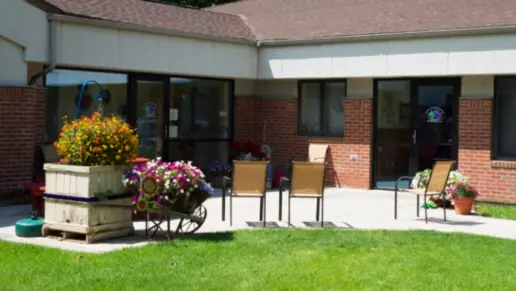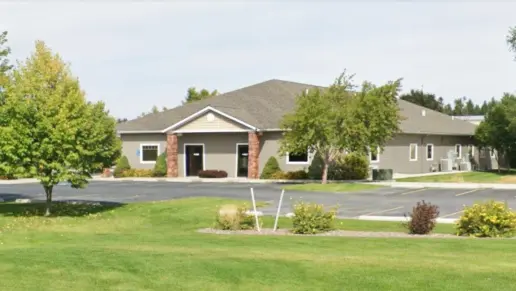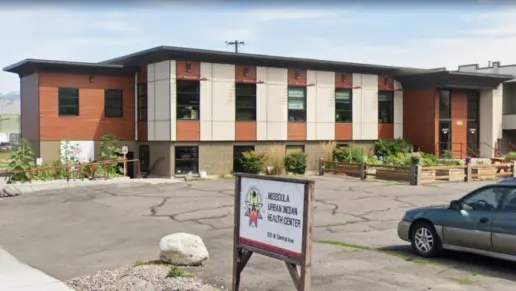Constantly have to wait two hours for an appointment. What a joke.
About Ideal Option
Ideal Option is an outpatient opioid addiction treatment facility in Billings, Montana. They serve adults over 18. This includes men and women affected by opioid use disorder. They’re committed to the highest standard of personalized care. This is validated by their Joint Commission accreditation. It’s also great that they accept Medicaid and Medicare. This makes funding convenient and affordable.
This facility specializes in medication assisted treatment. This technique uses FDA approved medicine and counseling to treat opioid addiction. The facility uses Suboxone and Vivitrol as risk reduction medications for this treatment. These medicines curb cravings and minimize withdrawal symptoms.
This enables you to undergo counseling or therapy. The specific medicine used will typically depend on your unique condition based on the individualized treatment planning. Their counseling helps you address the underlying causes of your opioid addiction and build solid coping mechanisms. This fosters lasting recovery.
Ideal Options is a national leader in office based medication assisted treatment. Their outpatient setting offers the convenience of primary care clinics but in a more accessible and flexible environment. They provide same-day scheduling in most cases and support walk-ins. Priority is given to urgent referrals from jails and emergency departments.
Aftercare services may involve referrals to peer support groups for ongoing support. They may also connect you to community resources like medical care, housing and employment. Comments from past clients reflect an overall positive experience.
Latest Reviews
Rehab Score
Other Forms of Payment
Private insurance refers to any kind of healthcare coverage that isn't from the state or federal government. This includes individual and family plans offered by an employer or purchased from the Insurance Marketplace. Every plan will have different requirements and out of pocket costs so be sure to get the full details before you start treatment.
Self-pay involves paying for treatment out of your own pocket. You can use savings or credit, get a personal loan, or receive help from family and friends to fund your treatment. If you don't have insurance or your insurance plan doesn't cover a specific program, self-pay can help ensure you still get the care you need.
Financial aid can take many forms. Centers may have grants or scholarships available to clients who meet eligibility requirements. Programs that receive SAMHSA grants may have financial aid available for those who need treatment as well. Grants and scholarships can help you pai for treatment without having to repay.
Medicare is a federal program that provides health insurance for those 65 and older. It also serves people under 65 with chronic and disabling health challenges. To use Medicare for addiction treatment you need to find a program that accepts Medicare and is in network with your plan. Out of pocket costs and preauthorization requirements vary, so always check with your provider.
Military members, veterans, and eligible dependents have access to specific insurance programs that help them get the care they need. TRICARE and VA insurance can help you access low cost or no cost addiction and mental health treatment. Programs that accept military insurance often have targeted treatment focused on the unique challenges military members, veterans, and their families face.
Medicaid is a state based program that helps lower-income individuals and families pay for healthcare. Medicaid covers addiction treatment so those enrolled can use their coverage to pay for rehab. When a program accepts Medicaid the client often pays very little or nothing out of their own pocket.
Addiction Treatments
Levels of Care
Treatments
The goal of treatment for alcoholism is abstinence. Those with poor social support, poor motivation, or psychiatric disorders tend to relapse within a few years of treatment. For these people, success is measured by longer periods of abstinence, reduced use of alcohol, better health, and improved social functioning. Recovery and Maintenance are usually based on 12 step programs and AA meetings.
A comprehensive drug rehab in Montana treats the entire person. Treatment methods address all the underlying causes of addiction and give the individual the tools they need to live a healthy, drug-free life.
Opioid rehabs specialize in supporting those recovering from opioid addiction. They treat those suffering from addiction to illegal opioids like heroin, as well as prescription drugs like oxycodone. These centers typically combine both physical as well as mental and emotional support to help stop addiction. Physical support often includes medical detox and subsequent medical support (including medication), and mental support includes in-depth therapy to address the underlying causes of addiction.
Substance rehabs focus on helping individuals recover from substance abuse, including alcohol and drug addiction (both illegal and prescription drugs). They often include the opportunity to engage in both individual as well as group therapy.
Programs


Clinical Services
Group therapy is any therapeutic work that happens in a group (not one-on-one). There are a number of different group therapy modalities, including support groups, experiential therapy, psycho-education, and more. Group therapy involves treatment as well as processing interaction between group members.
They provide highly specialized evidence based addiction counseling for patients with dependence on substances of all kinds. Counseling is always individualized based upon the particular needs of each patient. They allow each patient the autonomy to work with their providers to determine the optimal plan for each patient.
The role of the counselor who applies motivational interviewing is to listen and reflect rather than offer advice or warnings. By expressing the client's own thoughts back to them, the therapist allows the client to reflect on their motivations and come to their own conclusions about their need for change.
Trauma therapy helps you process traumatic events that you may have witnessed or experienced. This is the first step to healing from these events, integrating them into a more coherent narrative, and improving your resilience.
Family therapy offers a platform for open and honest dialogue about the challenges that addiction has created within the family unit. Using guided sessions, your therapist helps family members develop healthy communication skills and address unresolved issues. By working together, families can help support their loved one's sobriety.
Nicotine Replacement Therapy (NRT) is a way of getting nicotine into the bloodstream without smoking. It uses products that supply low doses of nicotine to help people stop smoking. The goal of therapy is to cut down on cravings for nicotine and ease the symptoms of nicotine withdrawal.
Amenities
-
Private Setting
Accreditations

The Joint Commission, formerly known as JCAHO, is a nonprofit organization that accredits rehab organizations and programs. Founded in 1951, the Joint Commision's mission is to improve the quality of patient care and demonstrating the quality of patient care.
Joint Commission Accreditation: Yes
Contact Information
1523 Wyoming Ave
Billings, MT 59102


